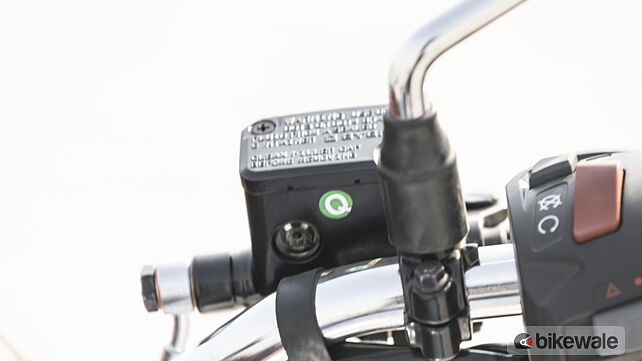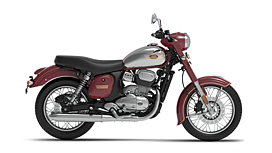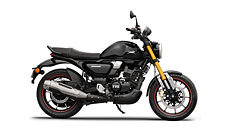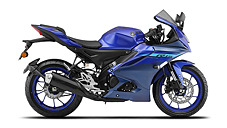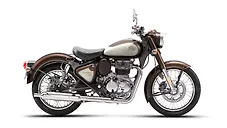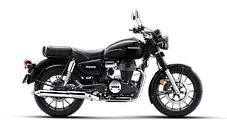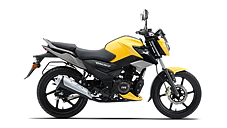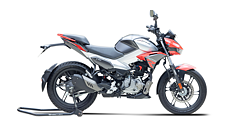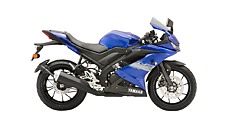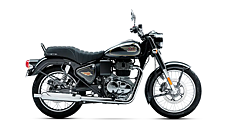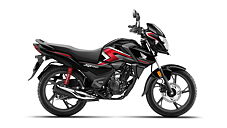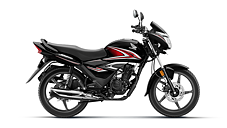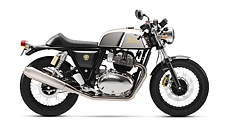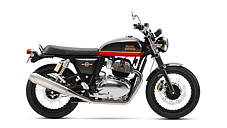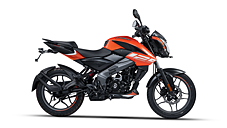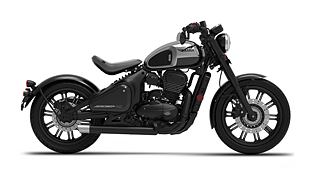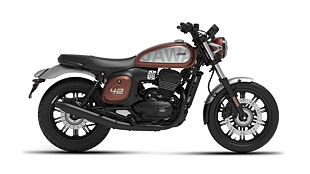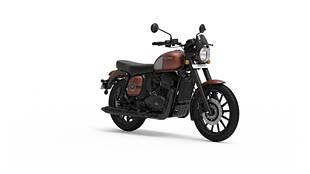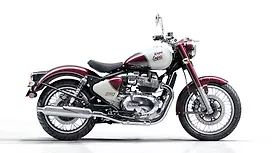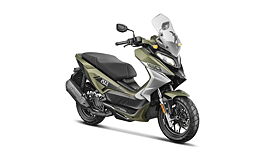Introduction

The new Jaw 350 is the successor to the Jawa Standard, also known as Jawa Classic and Jawa Jawa. The company has made multiple revisions to the bike intending to make it better and iron out niggles that the previous bike had while keeping the overall essence and flavour unchanged.
To examine whether the company has achieved what it aimed for and to find out if it’s worthy of its Rs. 2.15 lakh (ex-showroom) price tag, we flew down to the culturally rich and historic city of Bhuj in Gujarat. So, after a full day of riding on the wide-open and smooth roads of the Kutch region, here’s what we think about the new Jawa 350.
The Visuals

Paying homage to the older Jawas, like the Type 353, this has always been a handsome-looking motorcycle. However, the company has attempted to add more visual mass to it by including larger fenders, wider tyres, a longer-travel front suspension, and a chunkier seat, which is also more purposeful now. Jawa has also stepped up the quality of chrome and paint. In the flesh, while the bike looks slightly larger than before, the difference isn't significant and it still looks smaller than its closest contenders. I feel Jawa should’ve experimented more by giving some noticeable aesthetic revisions to it. Having said that, the newly introduced Mystic Orange paint scheme looks truly gorgeous.

On the quality front, the Jawa 350 is a significant step up over the Jawa Standard. Apart from a few unfinished welds, I couldn’t find any major quality issues. The paint finish, in particular, is very impressive while the fitment of panels and the quality of the switches are also decent.
The Package

Starting with what’s changed, the 293cc motor has been replaced by the 334cc unit which already powers the Perak and the 42 Bobber. While the displacement is up, the power output is close to 4bhp lower than before at 22.26bhp. However, the torque output is around 1Nm higher at 28.1Nm and it comes in slightly earlier in the rev band. Interestingly, since Jawa wanted to give the new 350 a specific engine feel of its own, the brand made some alterations to its motor over the unit present on the Perak. As a result, the latest entrant makes substantially lesser power and torque than the Perak and 42 Bobber.

Accommodating the bigger engine is a revised double-downtube chassis which, along with a few other factors, has caused changes in the bike’s dimensions and weight. The ground clearance sits at 178mm, which is not just 13mm higher than the previous model but also 8mm higher than the Classic 350, its arch-rival. As a result, the seat height has gone up from 765mm to 802mm. Other differences over its predecessor include a longer 1,449mm wheelbase, wider tyres at both ends, longer travel for its telescopic front forks and dual rear springs, and a considerably heavier kerb weight of 194kg. Besides, it continues to sport a single disc brake at both ends with dual-channel ABS.

With a semi-digital console, halogen lights all around, and a slipper clutch, the motorcycle is profoundly lagging behind its rivals seriously in terms of modern features. While that might not be a concern for modern-classic purists, we believe Jawa should’ve given it a more data-extensive and legible instrument cluster. The existing unit just comprises an analogue speedometer and fuel gauge along with a digital odometer and two trip meters.
The Ride

This engine of the new Jawa 350 boasts a very different character than the peaky nature of the previous, smaller displacement mill. This one is more of a thumper with a very strong mid-range and that makes riding it at city speeds extremely enjoyable. To give you a perspective, when you accelerate it from 50-60kmph speed in sixth gear, the bike pulls ahead vigorously. The bassy exhaust sound and pop and bangs under deceleration only add to the delightful persona of this mill. Even the refinement is impressive until close to 90kmph and the vibrations are almost negligible to this point. Helping its case further is a very light clutch, which is an assist and slipper type, and a gearbox that is very slick and shifts with a nice click.

However, once you pick up the pace on the highway and approach 100kmph of speed, the vibrations start making their presence felt on the pegs and the handlebar. And they keep on increasing with the rise in speed. Moreover, almost every time I rolled off the throttle, the bike decelerated with a jerk, especially at slower speeds. This was an issue with the fuelling of the engine and should be easily fixable.

Accompanying the friendly character of the powerplant is the confidence-inspiring handling dynamics of the Jawa 350. Owing to the wider tyres, longer wheelbase and slightly revised geometry, the bike feels more stable and predictable around corners, especially while going through sweeping bends. You can have a lot of fun flicking it from side to side around a set of twisties. Adding more sweetness to the package is a strong bite and lever feel from the front brake while the ABS too doesn’t feel overly intrusive.

As for the suspension, it’s tuned to be on the stiffer side and you feel almost every undulation, big or small. While the ride quality is not outright back-breaking, it feels constantly busy and even carrying higher speeds doesn’t help much. Having said that, the bike rarely loses composure, even if you fail to slow down through the nastier stuff.

Talking about seating comfort, shorter riders, who are around 5’5’’ or 5’6’’ tall, might find it slightly difficult to deal with the increased seat height of 802mm. However, once you get going, the bike greets you with an upright, commanding, and comfortable riding position. What surprised me is that you can even stand up on the pegs, gripping the fuel tank properly, and ride it for a few minutes without feeling odd. Lest I forget, the new seat has a much better design and denser cushion, thereby being extremely forgiving for spending long hours in the saddle.
Should you buy it?

All the effort that Jawa has put into bettering the motorcycle has paid off to a great extent. Some of its strongest traits are a brisk mid-range performance, strong front brake bite, agile and composed handling, and comfortable ergonomics. All of these qualities make it an involving motorcycle to ride. Plus, the quality is also better while the design is timeless and elegant, as always.

However, it’s still not deprived of niggles. It feels way too vibey at and above 100kmph to be a good tourer. It could also do with more useful features. And then comes the price. At Rs. 2.15 lakh, it’s close to Rs. 22,000 more expensive than the Royal Enfield Classic 350, a motorcycle that has better brand recall, is way more popular, and has proved itself over a long time. A price tag of under Rs. 2 lakh would’ve made it more enticing.

To conclude, if you’re someone who loves the way the Jawa 350 looks, isn’t bothered about contemporary features, and wants a modern-classic roadster that is enjoyable to ride, especially in the city, this one is very likeable.
Photography by Kapil Angane
Gallery
1/70
Jawa 350 Front Disc Brake
Double Tap to Zoom

